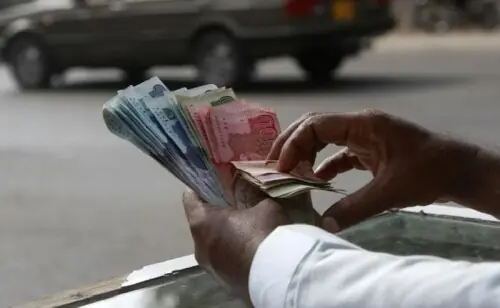SRINAGAR: Sedition charges against dozens of Muslim students from the disputed Indian territory of Kashmir, who were expelled from their university because they cheered for the Pakistani cricket team during a televised match against archrival India, are reportedly dropped but cannot be verified as yet.
A senior state official told the Hindustan Times that the sedition charges were dropped, but officials could not immediately be reached for confirmation.
Akhilesh Yadav, chief minister of northern Uttar Pradesh state, said Thursday he told state officials that such a serious charge as sedition, which carries a possible life sentence, should be withdrawn because the students probably did not understand the gravity of their actions.
Yadav's statement in an interview with the New Delhi Television news channel came amid widespread outrage over the students' expulsion in the Indian portion of Kashmir, a divided Himalayan territory that both countries claim.
Earlier Thursday, authorities tried to track down the 66 students for questioning to determine whether sedition charges were appropriate, police officer N.K.S. Chauhan said.
Love of cricket – a legacy of Britain's long colonial role of South Asia – is one of the few things that unites Pakistan and India, despite a long history of animosity that has fueled three wars since the subcontinent's bloody partition in 1947.
But the fracas over Sunday's match – which Pakistan won – shows how easily passions are inflamed over predominantly Muslim Kashmir. Insurgents have been fighting for Kashmir's independence or its merger with Pakistan since 1989.
Several of the students said their expulsion reeks of discrimination.
“We didn't do anything illegal,” said Muteebul Majid, a business administration student in his 20s.
“Are they slapping these charges against us for being Kashmiris or for cheering for the Pakistani team?”
Like several other students who spoke to the media Thursday, Majid had returned to his home in Srinagar, the main city in India-controlled Kashmir, after leaving school.
Gulzar Ahmed, also a business administration student, said he and his friends were never given a chance to explain themselves.
“They (local students) attacked us with stones and abuse after the match. Instead of taking action against their hooliganism, police bused us to the railway station and directed us to go home,” Ahmed said.
The students had been living in the dorms at the private College of Swami Vivekanand Subharti University, in Meerut, Uttar Pradesh state, which is nearly 560 miles (900 kilometers) from their homes in Kashmir. Calls to the school were not immediately returned Thursday.
The students' cheers for Pakistan would not have raised any alarms back home in Kashmir. Minutes after Pakistan won the nail-biter of a match, hundreds of Kashmiris lit firecrackers and chanted “Long live Pakistan!” and “We want freedom!”
There were joyful processions and celebrations in Srinagar and at least a dozen other areas in the region.
Omar Abdullah, the top elected official in the Indian portion of Kashmir, said sedition charges would ruin the students' future and further alienate them.
“I don't condone what they did, what they did was obviously wrong and misguided,” he told Indian news channel NDTV. “That having been said, they are young ... (Sedition charges) will further push them to the fringes.”
The banned Kashmir University Students Union voiced its support for the students. This “is nothing new, but a testimony to the fact that we have been in a perpetual state of war with India since the past 67 years,” the organisation said in a statement.
Pakistan's government showed support for the students.
“If these Kashmiri students want to come and pursue their studies in Pakistan, our hearts and academic institutions are open to them,” Pakistani Foreign Office spokeswoman Tasnim Aslam said.
In an editorial, the New Delhi-based Economic Times said the university's decision was bad for India.
“Many Kashmiris see their land as an occupied place, retained by brute force alone,” the newspaper said. “Behavior such as in Meerut only serves to strengthen this feeling, rather than to reduce any degree of alienation.”


































